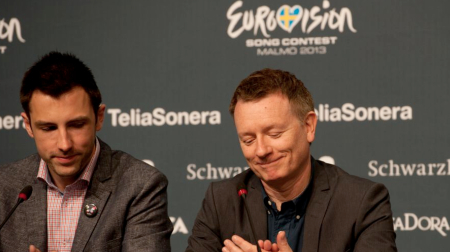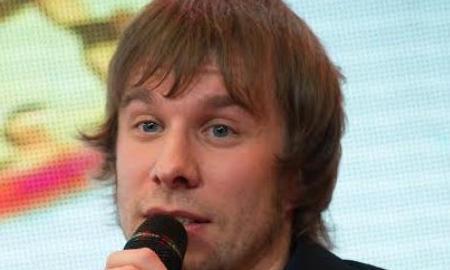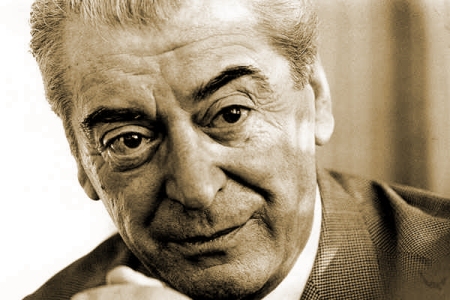The Knowledge
Putting on the Eurovision Song Contest (indeed any of the four main EBU Contest events) is a difficult undertaking. From the moment the final points are awarded, a host broadcaster will be faced with a ticking clock that will remorselessly count down the months, weeks, days, hours, and minutes until the next show. Every year is unique, but the host broadcaster has access to a bank of knowledge from people who have put on previous show, who have managed the event, who have worked with the press, and dealt with the countless details required to deliver the experience.
One of the main points of contact is the Reference Group for each Contest. In the case of the Eurovision Song Contest, the Reference Group has a mix of permanent members who have seen a number of Contests, and representatives from the broadcasters who have put on the last two Contests. They’ve all been through the fire and know where the traps are.
It would be much harder to organise a Song Contest without this institutional knowledge.

EBU Headquarters in Geneva (Image: EBU)
If you diminish the collective knowledge available in the reference group, if you lose the foresight of key players, if you lose the support structures around the group, or if the Reference Group has to deal with external organisations that have little or no practical experience of how these worlds work, then you will damage the health of your Contest, be it Eurovision, Junior Eurovision, Young Dancers, or Young Musicians.
It’s at this point that we have to turn to the news from this morning that Vladislav Yakovlev (Executive Supervisor for the Junior Eurovision Song Contest, Young Dancers, and Young Musicians) and the EBU have parted company.
The EBU’s general policy is to not comment on individual staff matters (today appears to be an exception), but what is clear is that Yakovlev was brought in to supervise three contests which were in danger, and turned them around into successful brands with a growing entry list. The knowledge of how these Contests run, the relationships between the Contests and the delegations, and the drive to succeed is now lost to the EBU.
It is especially perilous for the Junior Eurovision Song Contest, which has now lost its Executive Supervisor and Head of Press Kath Lockett in little over a month. Throw in the potential loss of the Chief Web Editor Luke Fisher in the new year thanks to the tendering process for web services, and while some institutional knowledge may remain, the personal experience and relationships needed to run Junior Eurovision have gone. The ability for the EBU to run the Contest has been damaged.

Sietse Bakker and Jon Ola Sand
A similar situation is in the process of occurring in the Adult Contest. While Executive Supervisor Jon Ola Sand remains in post, Sietse Bakker is currently serving his notice period in his role as Events Supervisor. The modern Song Contest is more than just the television production, and Bakker’s domain was ‘everything but the TV show’, from the Press Centre and online activities, to organising delegation facilities and liaising with the host city. During his notice period (which ends after Stockholm 2016) he is being shadowed by his replacement, so there will be some imparting of knowledge, but the loss of experience will place another strain on the EBU and the 2017 hosts.
It’s also worth noting that the Adult Contest lost its Chief Web Editor Jarmo Siim over the summer, a role which involved a significant number of relationships and organisation in the background to co-ordinate the world’s press, fan communities, delegations, and performers
Transitions do happen in the world of business and broadcasting, but they must be carefully planned for with roles and responsibilities documented. The transition to Jon Ola Sand from Svante Stockselius happened over a long period, with Sand’s experience as the Norwegian Head of Delegation, as the Executive Producer of Oslo 2010, coupled with creation of the Event Supervisor role for Bakker to aid continuity. Bakker also took on the role of Executive Supervisor for Junior Eurovision in 2011 and 2012.
The transition to Yakovlev at Junior Eurovision in 2013 saw the incoming Executive Supervisor arrive with an extensive address book to delegations thanks to his time at Young Dancers and Young Musicians, along with the experience of running those Contests. He took over that role from Bakker, and then grew Junior Eurovision from twelve entries to this year’s seventeen

Vladislav Yakovlev, Junior Eurovision’s Executive Supervisor
So much of the Contests’ tight timetable runs on one-to-one relationships. Since Vienna, many of these relationships have been lost, and the continuity that has been seen in previous years is at risk because of the speed, immediacy, and destabilising impact of the recent changes.
Handing Out Knowledge
There’s also the potential long-term danger of the tender process that the EBU has undertaken for the various ancillary services around the Eurovision Song Contest. Whichever mix of companies win the four tenders will have an incredibly tight definition of deliverables to work with, and they will be looking to use these tenders to generate corporate profit.
There is only a short amount of time for a company winning the tender to shadow the existing organisation, and it’s clear that they will not be able to observe a full Eurovision year. The process of transition is necessarily curtailed. How the knowledge will be passed over is a concern, but what is more concerning is what happens at the end of that tender process. Will there be an extensive handover period, any requirements to educate the next company that wins the tender?
Should there even be a tender process in the first place? If part of the role of the EBU is to provide education and opportunities to its members, would it not be more advantageous for the EBU to employ a small core team for each project currently out to tender and have the host broadcaster or other EBU members involved on a yearly basis to see how the operations are organised? Every EBU member has to deal with social media, websites, online presence, and back-end systems. Should the knowledge be retained by the EBU and shared with EBU members, or should it be passed out to external third-party companies
Once more, the question of who has the knowledge, who retains it, and how it should be shared with EBU members needs to be considered.
Final Thoughts…
The Eurovision Song Contest, Junior Eurovision, Young Dancers, and Young Musicians, are fragile contests. They need so much organisation to work, all planned on a very tight timescale. There is little room to make mistakes in the short period of time to organise these events, and there is a huge reliance on the EBU to deliver the knowledge, skills, and expertise to the broadcasters to make these Contests work. If that knowledge is lost to the EBU, it is lost to the broadcasters. If it is lost to the broadcasters then ‘the Eurovisions’ all become weaker shows. And if they become weaker shows then delegations and broadcasters may wonder why they are spending the money on one Eurovision show when they could be financing four or five live music gigs for the same money.

Marcel Bezençon’s values are needed as much in today’s turbulent world as they were after World War 2.
In the chaotic backstage world that we see, many have forgotten that the Eurovision Song Contest is not here to be used as a commercial football or a profit centre. Marcel Bezençon’s vision allows the EBU puts on these large-scale events to share knowledge, to increase the skills of its member broadcasters, and to promote harmony and understanding across the continent, and beyond.
The four Contests offer EBU members priceless experiences in event management and live broadcasting. It is imperative that the EBU ensures it can continue to deliver this to its members, before the value of the Contest to its members, the performers, and the audience, is lost.









